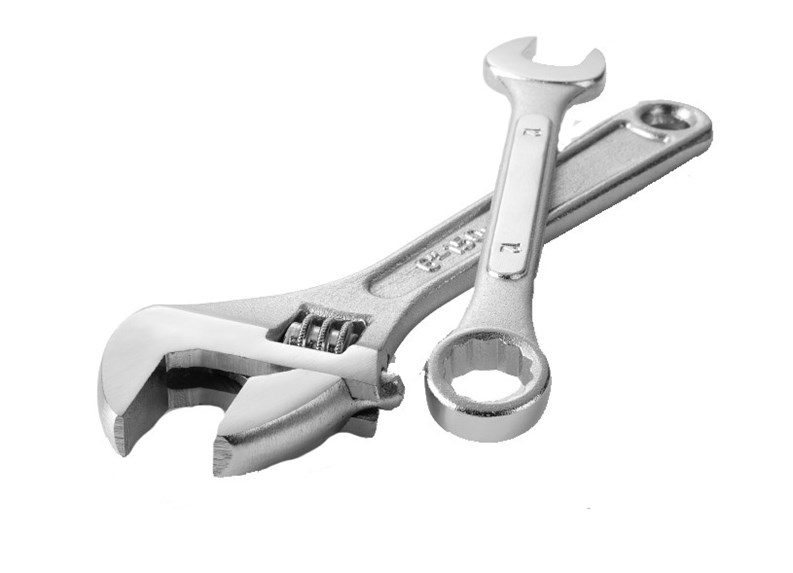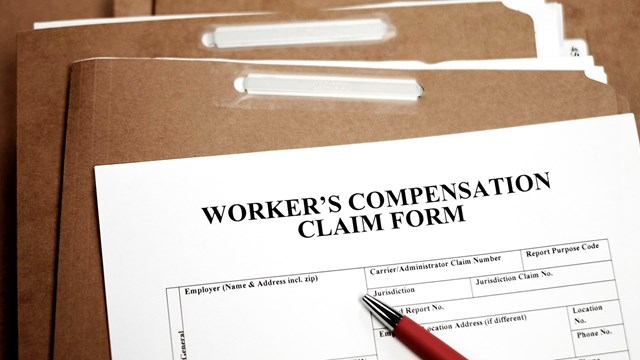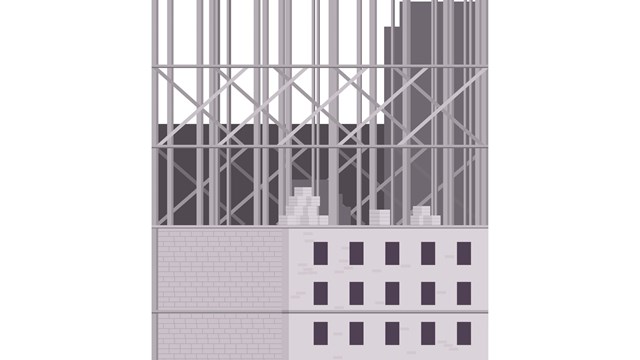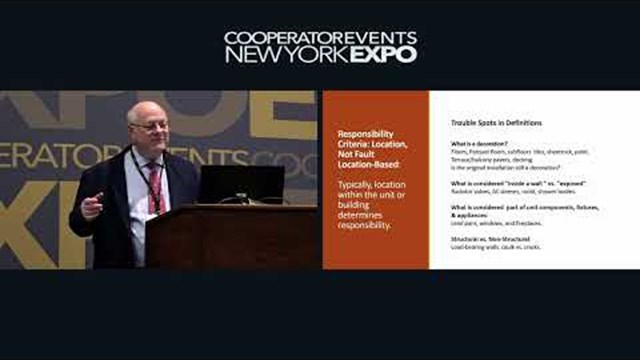Imagine this. Your contractor has finally completed the renovations to your bathroom - taking three months rather than the three weeks he promised. The wallpaper, special order wall and flooring tile match perfectly, and although you exceeded your budget, you are very pleased with the results. You leave for a trip and upon returning to your building, you are told by your doorman about the "big flood" in your apartment and how lucky you are to have been away. Filled with anxiety, you rush to your apartment and look in horror at your bathroom. The flood is gone and, essentially, so is your wallpaper and tiling which have been destroyed during the repair of the pipes in the wall. You call the managing agent of the building to ascertain what happened and to confirm that the building will completely restore your formerly beautiful bathroom. You are told it will not. You then call your insurance agent to notify him or her of the damage and to file a claim. Finally, you call your travel agent to book the next flight out of town to avoid dealing with the problem.
The above scenario describes an uncertainty shared by many co-op and condo residents: Just who is responsible for making repairs within apartments and common areas? If you encounter a similar situation, will you have to fork over the money to repair the mess? As a frequently-raised issue affecting cooperative living, this is the source of significant controversy and expense to many cooperative corporations and their shareholders.
In order to analyze the question of which party is responsible for making repairs to a cooperative apartment, it is essential to understand the relationship between a cooperative corporation ("Lessor") and a shareholder ("Lessee"). The resident of an individual cooperative apartment, unlike a condominium unit owner, is not the "direct" owner of the apartment, but a shareholder in a corporation. The corporation, in turn, is the title or leasehold owner of the land and improvements constituting the cooperative property. Ownership of shares in a cooperative corporation entitles the lessee to a long-term proprietary "lease" that grants the shareholder the right to occupy an apartment.
The lease is signed by an officer of the cooperative corporation, as Lessor, and the shareholder, as Lessee, and contains, among other things, provisions regarding the responsibility for the repairs of both parties. A lease will generally provide that the lessee is responsible for maintaining and repairing the interior of the apartment, while the cooperative corporation will be obligated to maintain and repair all other parts of the building. A typical lease contains four paragraphs dealing directly with repairs: Lessor's Repairs, Lessee's Repairs, Damage to Apartment or Building, and the Right of Entry paragraph.
The co-op is responsible for keeping all of the building, including all of the apartments, sidewalks surrounding courts, equipment and apparatus in good repair. The co-op must maintain all of the items except those portions that are expressly stated to be the responsibility of the shareholder pursuant to the lease agreement. The shareholder is responsible for repairs, however, if they have been rendered necessary by his own act, negligence or carelessness, or any of his family, guests, employees or subtenants.
The shareholder is responsible for keeping the interior of the apartment (including interior walls, floors and ceilings, windows, window panes, window frames, sashes, sills, entrance and terrace doors, frames and saddles) in good repair. In addition, the shareholder must do all of the painting and decorating required for his apartment, including the interior of window frames, sashes and sills. He is also responsible for the maintenance, repair, and replacement of plumbing, gas and heating fixtures and equipment, as well as refrigerators, dishwashers, air conditioners, central air conditioners, washing machines, ranges and other appliances that are in the apartment. The shareholder is also responsible for the exposed gas, steam and water pipes as well as the appliances and equipment to which they are attached. Any special pipes or equipment which he installs in the wall, ceiling, or under the floor are also his responsibility. These responsibilities do not include the gas, steam, water or other pipes or conduits within the walls, ceilings or floors or air conditioning/heating equipment, which is part of the standard building equipment. The shareholder is responsible for all lighting and electrical fixtures, appliances and equipment, including all meters, fuse boxes, circuit breakers, electrical wiring and conduits from the junction box at the riser into and through Lessee's apartment.
If the apartment or the building is damaged by fire or another cause covered by multiperil insurance policies commonly carried by cooperative corporations in New York City, the co-op will be responsible for repairing or replacing the apartment, including the walls, floors, ceilings, pipes, wiring and conduits using standard materials customary to buildings of the type. The building is not required to repair or replace equipment, fixtures, furniture, furnishings or decorations installed by the shareholder or any of his predecessors or to repaint or replace wallpaper or other decorations in apartments or to refinish floors.
Surprisingly, there is a gap in what the co-op is obligated to repair and/or replace in the event of a loss, possibly even if the damage is caused by the negligent operation and/or maintenance of the building. Generally, the co-op would not be required to repair or replace anything beyond the actual structural interior (walls, floors, ceilings) of the apartment. However, this gap can be closed by a first-party benefit homeowners insurance policy. This would provide a source of funds to cover the fair market value of not only loss to personal property such as clothing and furniture, but items such as paint, wallpaper and flooring at the time of loss. Moreover, for a slightly higher premium, a "replacement value endorsement" can be purchased, which should provide the lessee with the additional funds necessary to actually repair and replace all damaged items at the time of loss.
Although most leases contain substantially the same language, slight variations can significantly change the responsibility of repairs between Lessor and Lessee. Further, the house rules of each cooperative corporation vary and, while it is advisable to include all repair provisions within the lease, certain requirements may be contained in the house rules which, unlike the lease, may be amended from time to time by the board of directors.
The repair responsibility of terraces, balconies and roof areas adjoining a penthouse have been the source of much litigation and dispute since they not only affect the cooperative corporation but frequently other shareholders. Leaks have damaged neighbors' apartments and personal property. Some buildings have amended their leases to provide additional responsibilities to the terrace owners beyond the requirement typical in most leases. For example, most leases merely require the shareholder to keep the terrace, balcony, or roof area free of debris, snow, ice and leaves. Many leases now require the lessee to maintain the terrace, balcony and roof area in "good repair". Most leases provide that any costs related to the removal of structures installed by a shareholder on terraces, balconies or roof areas, when repair on the roof or building structure is necessary, shall be borne by such shareholder, along with the costs of restoring such structures.
When structures on roof areas are to be built, the consent of the board is necessary. It is important for the board to establish and/or clarify, among other things, the responsibility of maintenance and repairs thereafter. As in all proposed alterations, the building should require the lessee to execute an "Alteration Agreement," which may include future responsibilities for repair by the lessee for improvements he had made. The enforcement of house rules established by boards to approve or disapprove the placement of planters or other objects on roof terraces of apartments has been upheld by the courts as reasonable. The decision of a board to replace the surface of the roof terraces with concrete pavers rather than quarry tiles has also been upheld by courts citing board authority in both the bylaws of the cooperative corporation and the lease. Courts have emphasized that, "Inasmuch as the board of directors has the obligation to the repair the roof terrace, it should also be able to choose what type of floor surface is appropriate under the circumstances."
The Multiple Dwelling Law and the Housing Maintenance Code of the Administrative Code of the City of New York require a landlord (including a co-op corporation) to maintain the premises in good repair. This duty includes structural repairs in the building. Generally, interior walls and ceilings within apartments are the responsibility of the landlord. In addition, Section 235(b) of the New York Real Property Law, referred to as the "warranty of habitability", requires a landlord to provide a building which is safe and habitable. However, the lease and facts particular to any dispute will determine the responsibilities of the lessor and lessee for any repairs in the building and apartments.
In determining whose obligation it is to remove housing code violations, an accommodation must be obtained between the leasehold obligations of the parties, while recognizing the obligations under the Housing Maintenance Code and the "warranty of habitability." Thus, while the shareholder is entitled to the benefits under the warranty of habitability and the Housing Maintenance Code and the cooperative corporation may be required to remove violations in the apartment in the first instance, the cooperative corporation is free to pursue any remedy against the lessee for his or her non-compliance with obligations under the lease. For example, most leases require the shareholder, not the cooperative corporation, to paint the interior of the apartment. Should the lessee fail to comply and a violation be placed on the building, it would be the lessee who would be ultimately responsible to cure this violation. Thus, even though the cooperative corporation in the first instance may be statutorily responsible to remove the violation and have the apartment painted, it could then charge the shareholder for the repairs, bring an action for its costs or proceed to terminate the lease as a result of the contractual responsibilities under the lease.
Unlike cooperatives, the courts have determined "that the statutory warranty of habitability does not apply between a condominium unit owner and a board of managers since condominium unit ownership is a form of fee ownership of property and not a household interest involving a landlord/tenant relationship." However, as applicable to cooperatives, the Multiple Dwelling Law and Housing Maintenance Code, Building Code and Health Code of the City of New York are applicable to condominium units.
The responsibility for repairs to the individual condominium units and the common areas is based upon the by-laws of the condominium which typically contain a section entitled "Maintenance and Repairs." This section specifies which items are to be maintained, repaired and replaced by the unit owner or the condominium. The unit owner is generally responsible for all fixtures, appliances, and electrical and plumbing installations within the unit except if they are located in common elements and serve one or more units. The board of managers is generally responsible for all common areas except those limited common elements which are maintained by owners of units who use them exclusively. Likewise, the board is not responsible for the repair if it is necessitated by the negligence, neglect or misuse of a unit owner or his invitees, licensees or agents. In such a case, the expense is charged to the unit owner.
Article 9-B of the Real Property Law (the Condominium Act) states in part, "each unit owner shall be deemed the person in control of the unit owned by him or her, and the board of managers shall be deemed the person in control of the common elements, for purposes of enforcement of any such law or code, provided, however, that all other provisions of the Multiple Dwelling Law or Multiple Residence Law, otherwise applicable, shall be in full force and effect."
While most lease provisions and by-laws are standard regarding the obligations for repair, there are instances where the facts and building's structure are particular and require specific clauses to adequately and equitably deal with the situation. Each building has its own personality - what is appropriate for one building may not be for another. It is important for each board to review with its attorney and managing agent the legal and practical issues relating to this topic. The institution of a requirement that all lessees maintain insurance can also reduce costly and protracted disputes and litigation. The board must create a lease, by-law provisions and insurance requirements which clearly define the responsibilities of the building and its residents. Hopefully, that process will result in a clarification of in the lease, by-laws and/or House Rules, minimizing the disputes and costs which arise so frequently.










57 Comments
Leave a Comment